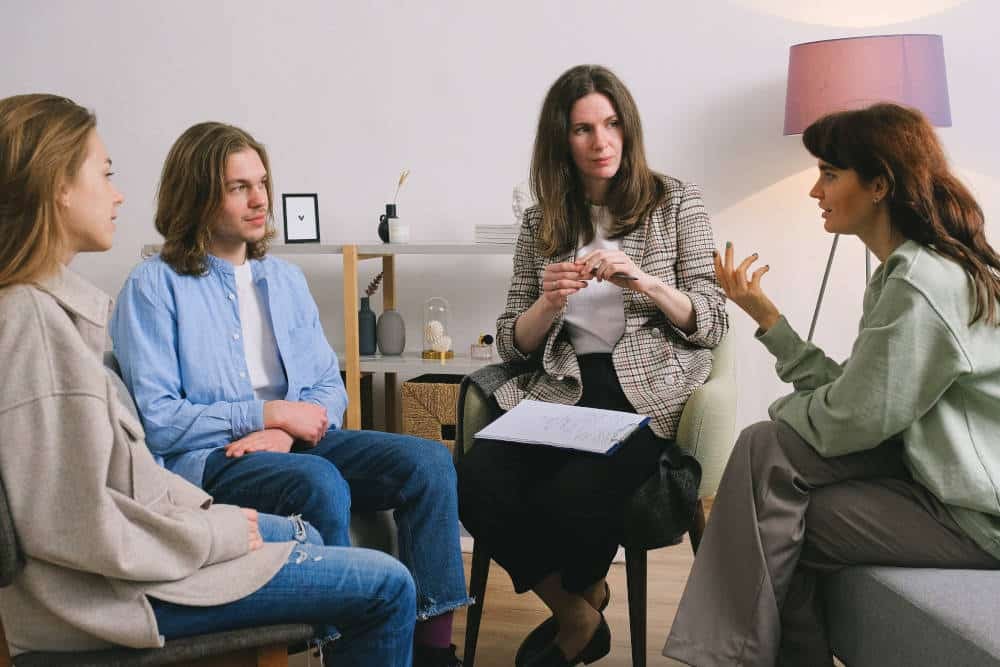
You might be wondering, “What is therapy?” To give you a definition, I would like to use cars as a metaphor. Hear me out. In my line of work as a therapist for both families and couples, people have come to me seeking help because of relationship struggles or being given ultimatums by a partner or family member. It is similar to when you own a car. Mechanical issues can sneak up on you unexpectedly. Usually, you are not aware of them until the car has come to a halt and then, all of a sudden, you can no longer ignore the signs. If you do not take your car to a mechanic for service or check-ups periodically, you can’t expect it to function properly without giving you trouble.
The same goes for interpersonal relationships. Some people start taking the most important people in their life for granted and neglect their needs as a result. Remember, if you do not take care of your relationships, they will stop taking care of you. Maintenance and hard work are fundamental to keep relationships well-oiled and trouble-free. If no surface cracks are visible in a relationship, that doesn’t mean that a storm is not brewing underneath. Being conscientious about making small gestures to keep your relationship healthy, prevents bigger problems from potentially developing later on.
1. What drives couples to seek help?
There are diverse reasons why couples seek therapy. And yes, therapy can truly help and is much cheaper than divorce or separation procedures. Clients of mine have pointed out that they were really reluctant and afraid to try couples therapy. They believed it would consist of heated arguments and finger-pointing. However, they then realized that therapy actually provides them with tools for communicating better and talking openly about what they truly need from one another. I have had couples stating that the hour they spent with their own therapist helps them focus on each other without any distractions, thus being able to work hard on their patterns of communicating. The majority of couples seek help when alarms start going off, such as when one partner gives the other an ultimatum or else when one is afraid of losing the relationship for good.
Unfortunately, I have had clients coming to their first therapy session, expecting that in a one-hour session, their, let’s say, 20-year marriage conflict is going to be resolved. Unfortunately, this is absolutely not the case. Both partners need to be willing to work on the relationship and be open to change. The parties involved need to work hard both during the session and outside the therapist’s office, once the session is over.
Here are some examples why couples decide to seek therapy:
- Couples growing apart – After years of being in a relationship, couples tend to no longer engage with one other, and they coexist as roommates instead;
- Couples clashing over money and property – Clashes may stem from differing spending styles or disagreements on how to distribute costs and savings for retirement. Some struggle when money is associated with power, and it can create an imbalance in the relationship;
- One partner being unfaithful – This is one of the most common reasons why couples seek therapy;
- Couples having plenty of unproductive, hurtful arguments – People have different ways of handling conflict. Couples have mentioned to me that they got stuck in this repetitive loop of arguments, and they can’t seem to get out of it. During sessions I give them homework tasks which help them break these patterns. Therapy also supports couples in diffusing disagreements in a healthy way — reasonably and respectfully;
- Big life-changing transitions – These could be an illness, disability, aging, a traumatic experience, loss, retirement or having the last of your children move out;
- The couple’s love life lacking excitement – Couples tend to forget that they should be having fun both on a sexual and emotional level;
- Couples wanting to avoid divorce or at least to have an amicable one – I have had couples seeking guidance on how to break up amicably. Others simply came to seek support or guidance on how to support their children during a divorce or separation.
2. What clients value most in their clinic and therapist
Couples value that their therapist is interested in their background story, is a good listener, full of resources, knowledgeable, non-judgemental, as well as analytical and altruistic. Couples are especially seeking a therapist that does not take sides. When I was studying at the Institute of Family Therapy, I went through rigorous training managed by mentors who are veterans and experts within their field. Clients appreciate that their therapist has the right credentials and is qualified to deal professionally with their complex situation.
Couples tend to respond well to the clinic’s atmosphere. Several clients have remarked that the environment at paths is warm and welcoming. The psychology assistants are an integral part of the team, as they greet clients warmly and strive to accommodate their needs.
When calling to set up an appointment, clients are given one immediately. The clinic offers clients the possibility to make an appointment through various means, either via phone, email, Whatsapp, or social media, thus they can communicate using a medium that they feel comfortable with. Another strength of the clinic is that it employs professionals coming from different backgrounds, therefore the clients can opt to interact with whom they feel most comfortable.

3. Families: what triggers their need for therapy
Family therapy is distinct from other forms of therapy because it focuses on the family system. The problems of individuals are observed within the context of the larger family unit. As a family therapist myself, my raison d’être is that personal difficulties cannot be successfully addressed or solved without understanding the dynamics of the whole family.
These are a number of concerns that are presented to me time and time again during my family therapy sessions:
- parental conflict
- concerns about family members’ physical and mental health
- domestic violence such as emotional, psychological, physical and sexual abuse
- drastic changes and events that leave an impact on the family system
- bereavement
- understanding anger from a family perspective
- dealing with trauma
- relationship issues
- behavioural issues
- a lack of connection between family members.






